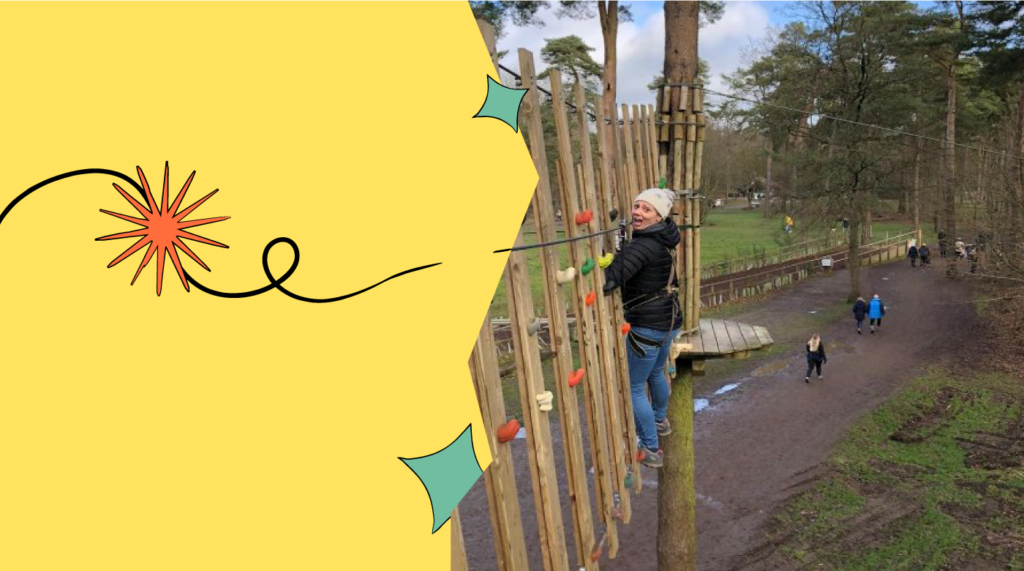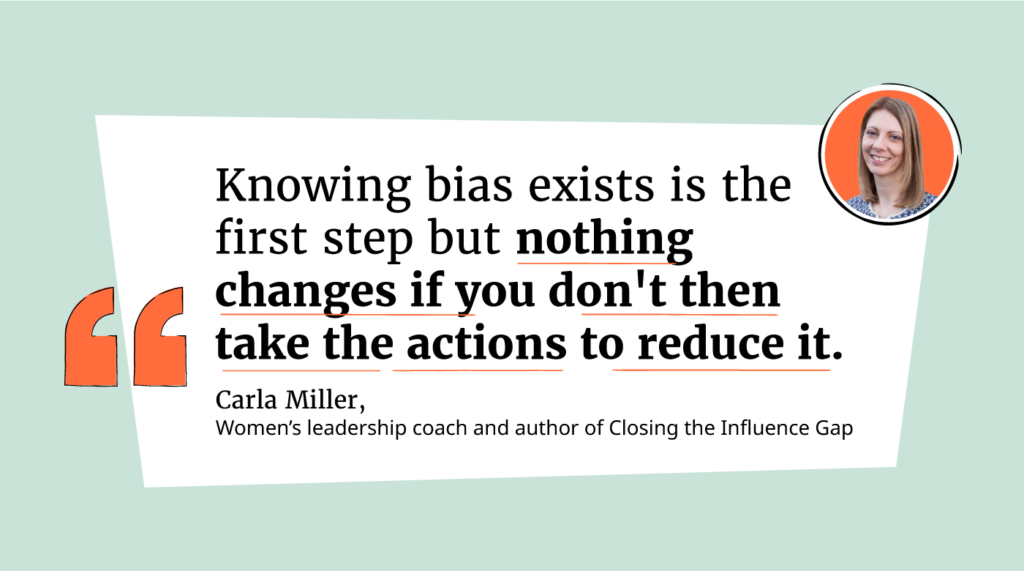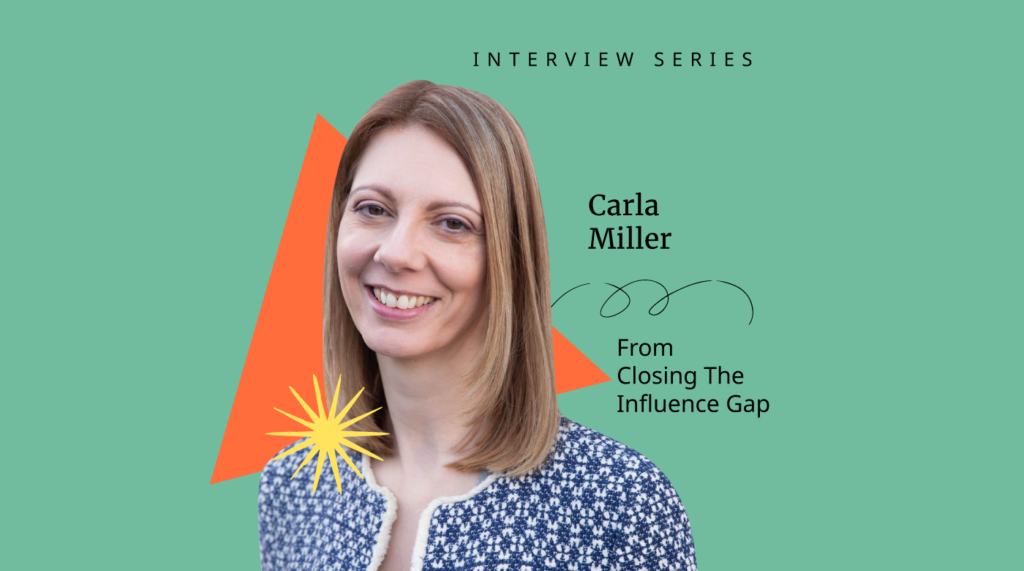We’re passionate about the world of work, and how we can make it better. To help satisfy our curiosity, we’ve launched an interview series where we pick the brains of experienced leaders, business owners, managers, and individual contributors to get their thoughts on how we can collectively build better workplaces.
We’d love to get to know you a bit better, tell us a bit about your backstory.
My background is in the charity sector where I led fundraising teams and then organisations and raised over £20 million for good causes. I became a Director at 29 and I was often underestimated as a young woman in a room full of older men and found it hard to get my voice heard. As a result I experienced a lot of self-doubt and imposter feelings despite the fantastic team culture I built and the results we achieved.
Because when your input isn’t being valued and you’re constantly being interrupted you eventually start to believe that what you have to say isn’t valuable.
At the time I felt very alone in those influencing challenges and those feelings of not being good enough. Of course, now I’ve worked with thousands of women as a leadership coach and trainer. I know that gender bias is real and rife and that many women assume that what they are experiencing is a sign that they are not good enough at their job and need to work harder.

I was fortunate enough to work with a coach to build my confidence and I also developed my own ways of navigating internal politics and influencing upwards and sideways that meant I got my voice heard.
That combination of self belief and influencing unlocked new opportunities for me and I soon had no issue getting my voice heard, quickly becoming a CEO of a charity then Managing Director of a recruitment consultancy and spending years facilitating strategy days in boardrooms with business leaders of global companies.
I also qualified as a coach and I have been coaching managers and leaders for the past 14 years, helping others to avoid some of the pitfalls I faced. I now focus entirely on helping close the Influence Gap that women experience, through courses and programmes aimed at helping them navigate the workplace and also male allyship workshops because we need men’s engagement in gender equality programmes.
I’m the host of the chart-topping podcast Influence & Impact for female leaders where we discuss anything and everything relevant to women in the workplace. My best-selling book ‘Closing the Influence Gap: A practical guide for women leaders who want to be heard’ was recently named by Management Today as one of the best books for leaders to read in 2023.
If we were to ask a friend to describe your personality to us, what would they say?
I think they’d say I’m a calm and supportive friend, that I work too hard because I love what I do and that my journey to solo parenthood and how I juggle that with running a business is inspiring.
Of course they don’t see me collapsed on the sofa watching Netflix every night—I’m not very inspiring after 8 pm!
Thinking back to your career journey, what’s an interesting story that stands out?
I call it my Cloak of Authority moment. I was 29 when I took on my first Director role and as part of the interview process I met members of my team. After I’d been hired, I discovered that those team members had thought I was too young for the role and had not supported my appointment. I clearly didn’t have a lot of natural authority!
The team was struggling after a difficult period and some of them were openly challenging my authority to lead and make changes. I was having challenging conversations that Carla the person did not want to have (I hate conflict and want to be liked as much as anyone else) but Carla the Director needed to have.
I was also having to deliver bad news about income to a board of Trustees, prove to people that I deserved this Director role, and hold my own in conversations with CEOs and celebrities. I needed to have more authority to be able to do my job well.
It took me a while to realize that my authority didn’t need to come from me, because my job title came with authority. And so does yours!
At the time, the Harry Potter films were hitting the cinemas. In the first film Harry is given an Invisibility Cloak for Christmas and when he wears it he becomes invisible. So I decided to create some magical clothing of my own … The Cloak of Authority.
Whenever I had to go into a challenging meeting I would imagine myself putting on my Cloak of Authority and claiming the authority that came with my job title. Studies tell us that tools like this, alongside affirmations and power posing add to our sense of self-efficacy and allow us to feel more in control.
Putting on my Cloak of Authority made me feel empowered and helped me to stick to what I planned to say instead of wimping out for fear of judgment.
My body language was different, my voice was lower, my speech was slower and I was able to sit with any uncomfortable silence.
The Cloak of Authority is now one of my favorite simple coaching tools to share with my clients when they need to step into the authority that comes with their role.
What’s the most impactful lesson you've learned over your career thus far?
It’s something I call radical responsibility. When I was first leading teams I would get really frustrated by organizational issues or “difficult” colleagues who made my job and my team’s job harder.
Then I realized that I had the ability to improve things rather than moan about them. I started to focus on creating solutions to the department’s issues with the finance team or the lack of organizational strategy.
Sometimes it was about raising the right question. Sometimes it was offering to lead a meeting to solve the problem. Sometimes I did the legwork to get a project kick-started.
That one approach shifted my career from average to very successful. It led to multiple promotions because my employers could see that I was committed to making things better. It is a mindset shift that has served me very well.
Thanks for giving us some insight into who you are! Let’s jump into things. When you hear the phrase “build a better world of work”, what comes to mind?
A world where everyone feels valued and can contribute their talents. Essentially one where psychological safety is a core part of the culture and embedded into leadership and organizational dynamics.
For you, what’s the main blocker you see as standing in the way of building a better world of work?
I spend my days talking to talented, experienced women who struggle to get their voices heard in the workplace. They are “manterrupted” (women are interrupted or spoken over 50% of the time in work meetings) or “hepeated” (when women make a point, get little response and then a man in the meeting makes the same point and receives all the credit).
And when that happens to you constantly, you start to question your own value and doubt your judgment. It is no wonder so many talented women experience imposter feelings. Gender bias often goes unrecognized and it is costing both employers and women.
What’s one thing within our control that we can practically do to build a better world of work today? And, how do you recommend going about it?
Create workplaces where women can thrive. It’s going to involve approaching gender bias from a number of angles.
- Empowering women so they recognise what is happening and believe in themselves again.
- Engaging men as allies.
- Training leaders and improving systems to remove bias when it comes to recruiting, internal interviews, pay discussions, career conversations and counteracting gender bias in everyday working life.
- A conscious culture shift starting at the top.
- Rethinking some of the assumptions we make about the shape of work and what leadership looks like.
It is a huge challenge (and one that goes hand in hand with tackling many other forms of bias) but I believe it is one worth embarking upon.
What steps can employers take to empower women so they recognise what is happening and believe in themselves again?
We've found that bringing together groups of women in a facilitated safe space is a great start to this. A simple way to start might be a Women's Network led by women within the organisation who gather monthly to talk openly and welcome guest speakers on topics the women have identified as relevant.
You can also run a survey to see what women want support with although it can be hard to create the psychological safety that allows people to be honest in a survey. You could invest in 1:1 coaching for women.
Or you can bring in an externally facilitated workshop or training course where women learn and also support and encourage each other.
It is very reassuring when you hear someone else voice the very same thoughts, feelings and challenges you thought you were alone in. Our most popular course is the Be Bolder course for women at any level which covers tackling imposter feelings and self-doubt, courageous conversations and speaking up in meetings—topics identified by the thousands of women we asked about what they find hard in the workplace.
We also run a women's leadership programme, Influence & Impact, which tackles those topics and others tailored to senior women and includes training on how to get your voice heard by senior stakeholders, since we know women experience an influence gap even when they have a seat at the table.
What does it look like to engage men as allies? What steps do you recommend?
It starts with helping men to understand how gender bias plays out on a daily basis in the workplace so that they understand the challenges women face. This isn't about making men feel bad—even women hold gender bias as society has trained us all to make assumptions about gender.
Then, I like to share how men can support women as colleagues, leaders and outside of work with super practical actions such as passing the floor back to a woman who has been interrupted in a meeting, providing specific feedback that prepares women for leadership roles or checking that you're doing your fair share of the life admin at home if you live with a woman.
It's fantastic if you can facilitate a discussion around this and provide those practical tips that actually create change.

Can you share one thing you’ve experienced, seen, or read about that is leading us towards a better world of work?
I’ve been really encouraged by the fact that men are increasingly becoming allies in the push towards gender equity.
In my male allyship workshops, I’ve seen men be really open minded and curious about the additional barriers to progression and influencing that women face and eager to become advocates for their colleagues.
I think there is a true desire for fairness that we all share and sometimes we just need to create space to have those important discussions.
It’s also encouraging to see companies put male allyship on the agenda rather than thinking women’s leadership programmes are the only answer.
They are a piece of the puzzle as women need to know how to undo some of the damage that gender bias has done to their confidence, and learn how to get their voices heard in what is still a man’s world but ultimately we need to be addressing the broken system and we need men to help do that.
I’m curious, thinking about building a better world of work, is there a company and/or leader who stands out to you as someone we should follow? If so, what are they up to?
I’ve been watching the Menopause Friendly Employers Accreditation really gather momentum.
Menopausal women are the fastest growing workplace demographic and many are still suffering in silence or considering leaving their role.
It has been fantastic to see some big name employers start to recognise this and take action and I hope that in the coming years that will become a core part of any organization’s approach to HR.
How can our readers follow your work?
You can find out more at www.carlamillertraining.com, connect with me on LinkedIn, listen to my podcast Influence & Impact for female leaders on any podcast platform or find my book Closing the Influence Gap in any bookstore.
Thank you for adding your voice to People Managing People’s interview series on How to Build a Better World of Work!
Add your voice to the conversation
Join our interview series and share your ideas for how we can build a better world of work!

